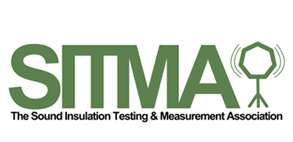Offices Nationwide

Sound Privacy
Privacy describes the perceived sound reduction across a wall. Privacy is a function of both sound insulation and background noise. Background noise is made up of services noise and environmental noise sources breaking in through the facade or open windows, vents etc.
If the background noise within a room is increased by 5 to 10 dB, the perceived level of privacy across a partition is also increased by 5 to 10 dB. Therefore, when looking at required sound insulation levels on-site, it is important to consider both the background noise in the receiver room and the sound insulation across the partition.



Point of Reference
Points of Reference *measured in dBA or decibels:
- 0 The softest sound a person can hear with normal hearing
- 10 normal breathing
- 20 whispering at 5 feet
- 30 soft whisper
- 50 rainfall
- 60 normal conversation
- 110 shouting in ear
- 120 thunder



Sound Levels
Decibels (dB) are most commonly used as a measure of sound level, but they are also used in electronics, signals and communications.
Sound is a variation in pressure detectable by the ear, whereas noise is undesired sound, or any sound which causes disturbance or annoyance to the recipient. The unit used to describe sound wave intensity is the bel, named after the inventor Alexander Graham Bell. The human ear is sensitive enough to detect changes of as little as 1/10 of a bel, and so sound intensity levels are described in decibels.
A sound wave’s intensity is the average amount of energy transmitted per unit time through a unit area in a specified direction. The sound intensity level, I, in decibels is 10 times the logarithm of the ratio of the intensity of a sound wave to a reference intensity.



Sound Insulation
Two parameters are used to describe the sound insulation of a partition, Dw and Rw. Dw represents the sound insulation between rooms on-site. Since these figures describe the fnal site requirements, Dw levels are specified by clients and Building Regulations. Rw represents the lab tested sound insulation of an element making up a partition wall/floor type. Due to flanking and other factors, lab rated sound reduction levels will not be achieved on-site. Conventionally, there is a 5 to 10 dB reduction between a Rw lab tested figure and an on-site Dw figure. The conversion between Dw and Rw is relatively complex and takes into consideration receiver room volume, receiver room reverberation times and the area of the separating partition. The conversion between Rw and Dw should always be calculated.


Copyright 2025 E2 Specialist Consultants Limited
Company No. 06728970

































